Cases of elephant attacks have become more frequent in Thailand. The huge animals are wreaking havoc on roads, invading tourist areas and even breaking into homes. Since 2018, elephants have killed at least 150 people and injured another 133, according to Thailand's National Parks and Wildlife Service. 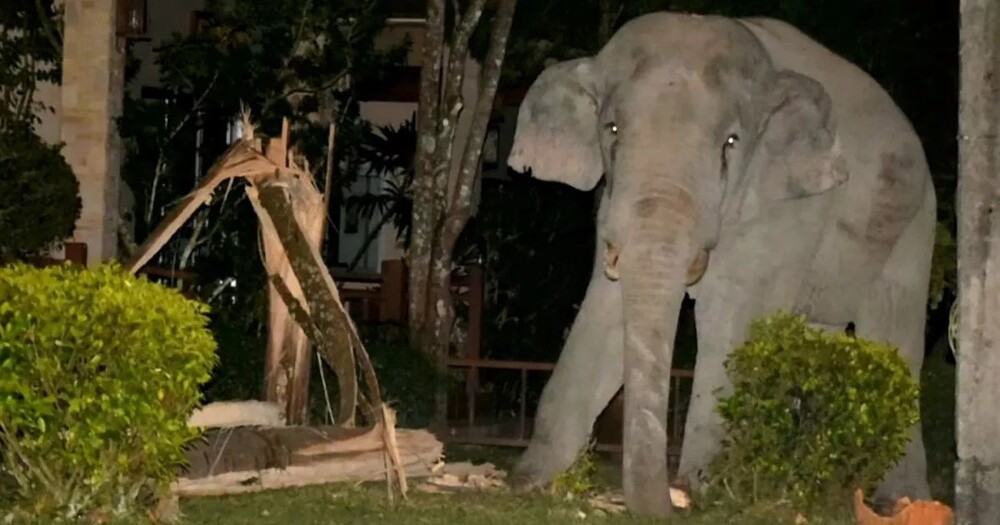
Most of the victims are tourists. And the frequency of incidents is only increasing. In addition to violent clashes with people, entire herds of elephants block roads and run over cars.
So, 50 elephants came onto the highway in Chachoengsao, completely paralyzing traffic. And in Khao Yai National Park, a 34-year-old seven-ton giant named Duea lay down on a car. 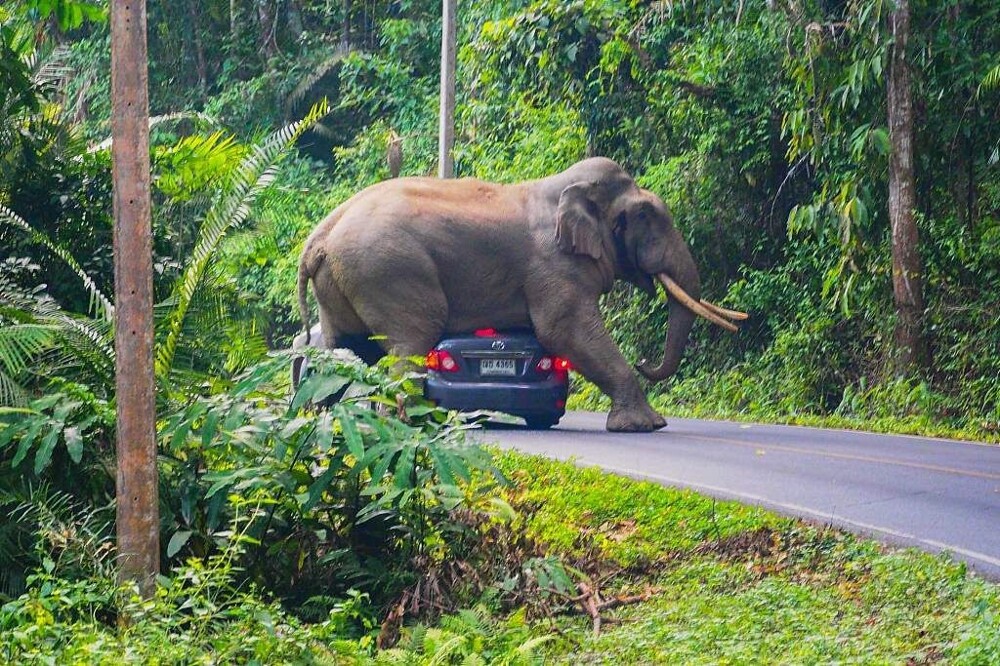
Provinces such as Nakhon Ratchasima, Phang Nga and Hua Hin have seen a surge in human-elephant clashes. Residents have to arm themselves with ping-pong “bombs” to scare away the animals.
Humane Society International believes that elephant aggression is associated with their captivity. In Thailand, a large number of elephants are employed in the tourism and logging industries, many are kept in zoos and perform in circuses. 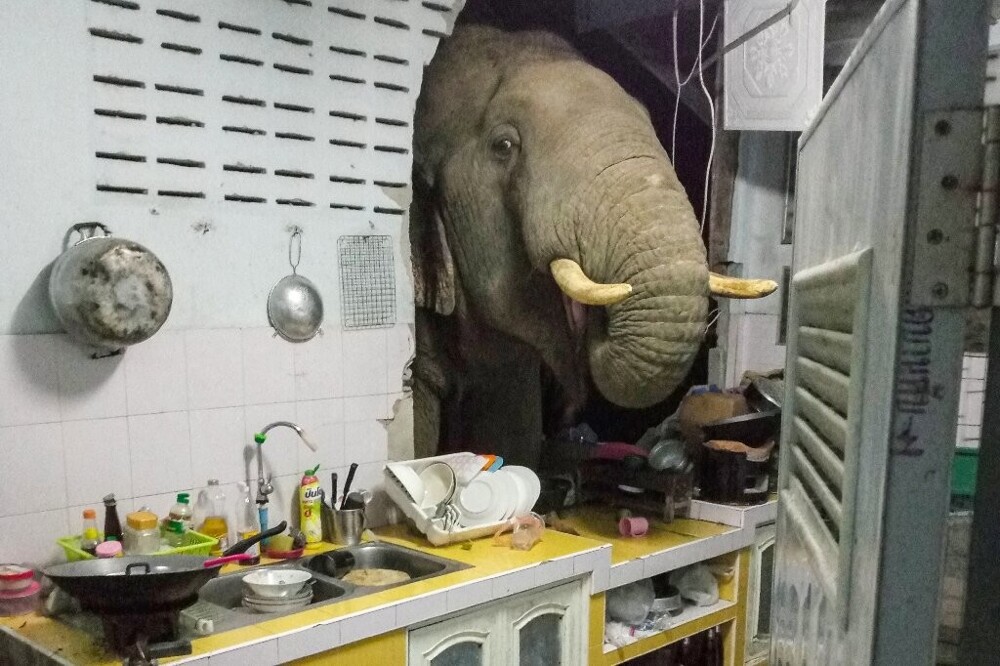
The animals are kept in small enclosures, shackled with ropes and chains, and forced to perform tasks to satisfy the financial interests of their trainers.
Animal rights activists have long opposed elephant riding as a form of torture. 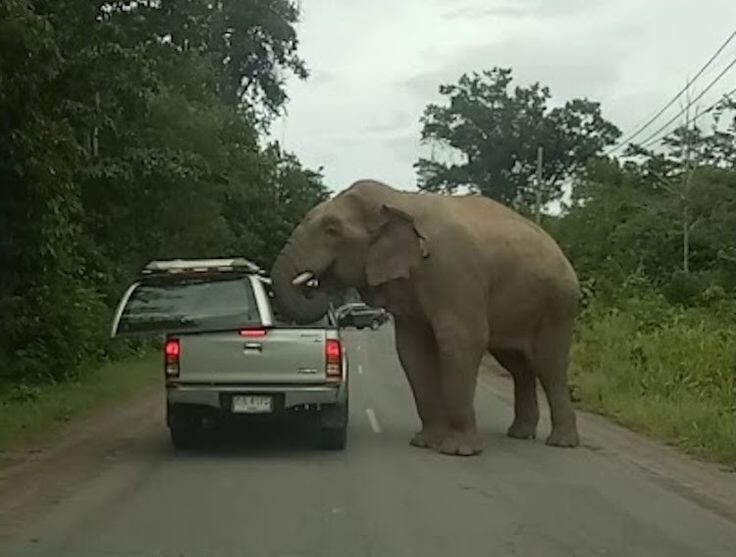
Adam Payman, director of wildlife programs at Humane Society International, said: "When people are injured or killed by elephants, it is of course a tragedy, but it is important to understand the underlying abuse and exploitation these animals have endured. for a long time".
He urged tourists to avoid recreational activities involving elephants and also blamed the rise in attacks on human greed as the decline of elephants' natural habitat led to competition for land and resources. For this reason, animals are forced to eat crops from farms.
“People themselves throw firecrackers and stones at the herd, so the elephants learn to be afraid and defend themselves.” 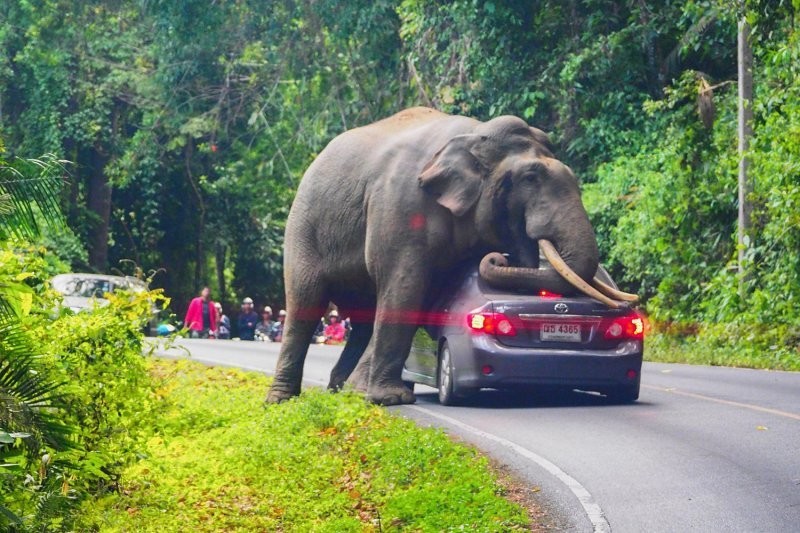
Add your comment
You might be interested in:





















